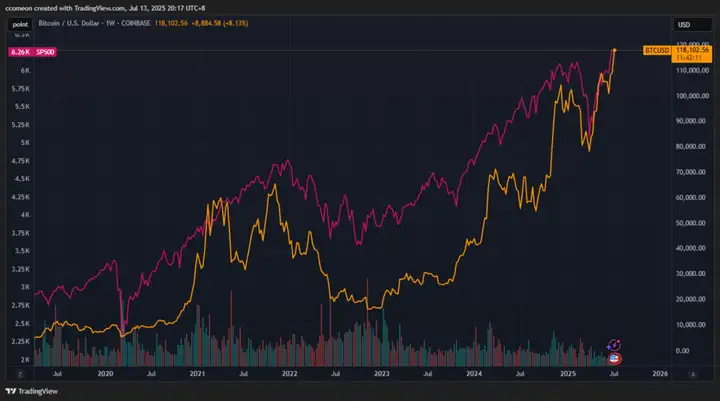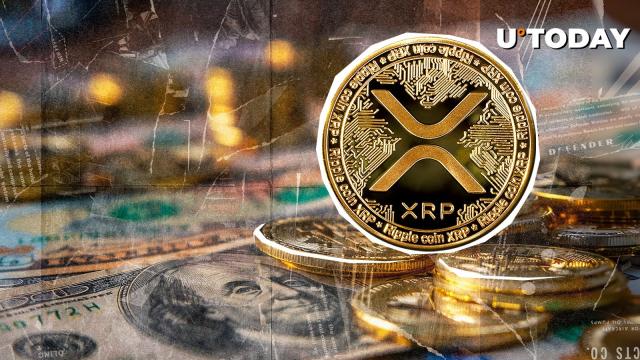Bitcoin finally broke out of its narrow range last week, surpassing the resistance level of 119,000 that had been maintained for a month, reaching a new high of 119,000 USD. The reasons for this trend are diverse, but the trigger was undoubtedly the postponement of tariff negotiations, followed by the FOMC meeting releasing dovish signals, the Shanghai State-owned Assets Supervision and Administration Commission's party committee discussing cryptocurrencies and stablecoins on July 10, and rumors of Powell considering resignation, all of which fueled the cryptocurrency market's rise.
VX: TZ7971

Influenced by a series of positive news, Bitcoin finally left the downward trend that had been maintained for nearly two weeks on the daily line, returning to an upward trend and establishing 110,000 USD as a new support level. As long as it does not break below this price and further explore 108,000, the Bitcoin upward trend can be considered established.
However, it is worth noting that this wave of movement is mainly driven by futures, and there has been no significant inflow of spot ETFs, indicating market skepticism about this trend. But if the upward momentum continues and the spot market follows, the probability of Bitcoin breaking through 130,000 or higher is very high.

Tariff Negotiations and CPI Data Will Influence This Week's Trend
The key economic data for the US this week is the CPI figure for June, to be released on Tuesday. The market currently expects CPI to grow, indicating rising inflation, as June will reflect the first wave of impact of US tariff measures. If it is lower than expected, as in the past few months, it would suggest that inflation is indeed cooling down, and the Fed's September rate cut should be without doubt, which will continue to stimulate market optimism.
More worrying is the tariff negotiation issue, as Trump announced over the weekend that tariffs on the EU would be set at 30%, higher than analysts' expectations. The market is concerned about whether the tariff issue will worsen. Meanwhile, important US trading partners like Japan and South Korea still have dissatisfaction with tariff conditions, so trade relations could change at any time before the August 1 deadline, affecting market investment sentiment. The current postponement of negotiations only pushes uncertainty to August.
Additionally, the market last week heard rumors that Powell might resign. However, he previously emphasized in a media interview that he could not imagine any reason for early retirement, so whether he will indeed resign remains to be confirmed. But if he does resign, rate cuts would enter a new stage, which would be very beneficial.






